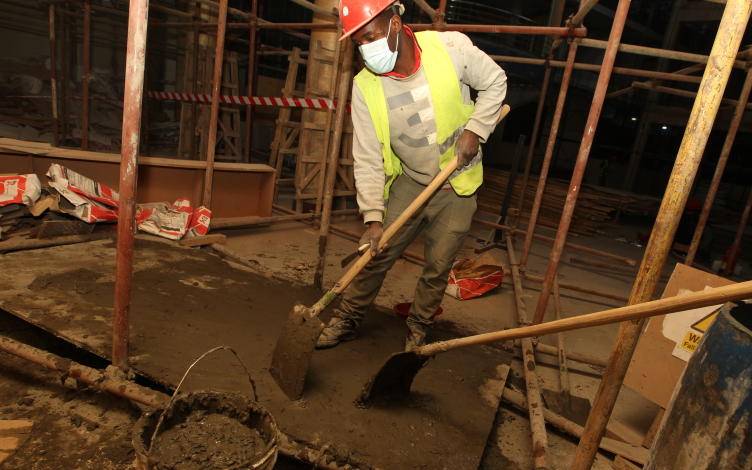Ongoing works at the Business Transformation Project that will entail convergence of all Standard Group newsroom operations across all platforms. It will involve the convergence of the commercial functions, the creation of a new organisational structure to reflect the new functions, processes and roles, change of titles, and appropriate alignment of support departments. Picture taken on Wednesday Sept 8, 2020. [Jonah Onyango, Standard]
